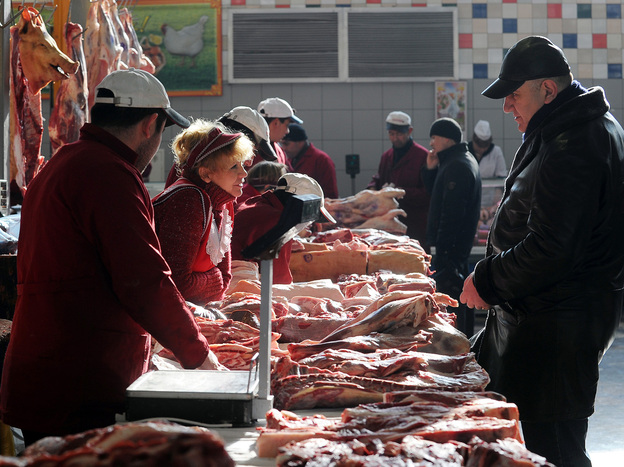
Post by Dan Charles, The Salt at NPR Food
Chances are, you've never heard of ractopamine. But as of Monday, U.S. meat exports to Russia — worth $500 million dollars a year — have been suspended, all because of this obscure chemical.
Russian officials say American meat products won't be allowed into their country unless the meat is certified free of ractopamine.
Some U.S. meat producers add ractopamine to the feed that they give to their pigs, cattle or turkeys. Animals who are fed ractopamine convert more of their feed into valuable lean protein, rather than fat.
Traces of the additive can be detected in meat, but the U.S. Food and Drug Administration says those small amounts pose no risk to human health. The FDA first approved the additive in 1999.